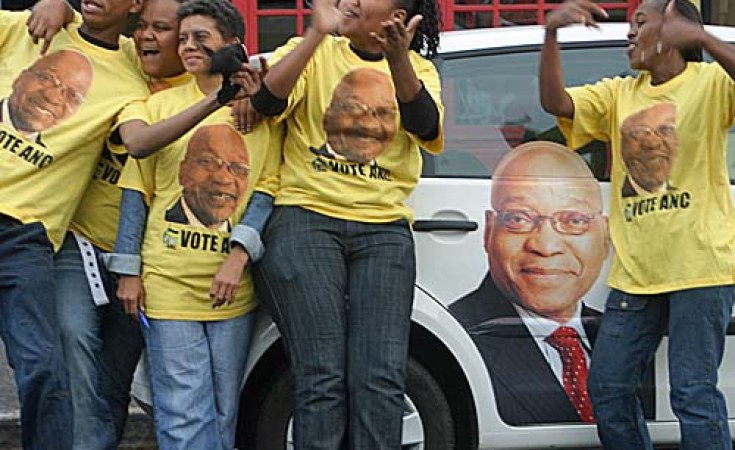Cape Town — The ruling African National Congress (ANC) has won South Africa's national election with a slightly reduced majority, narrowly failing to achieve the two-thirds majority that would enable it to change the country's Constitution unilaterally.
Although the party lost votes across the board in most provinces, the losses were largely offset by a dramatic leap in support in KwaZulu-Natal, home province of the ANC's leader, Jacob Zuma - at the expense of Chief Mangosuthu Buthelezi's Inkatha Freedom Party (IFP).
But in the Western Cape, centred on Cape Town, the ANC suffered as calamitous a setback as did the IFP in KwaZulu-Natal, losing control of the province to the official opposition, the Democratic Party.
The formal announcement of the election results was made by Hlophe Bam, the chair of the Independent Electoral Commission (IEC), on Saturday afternoon, South African time.
Figures released by the IEC showed that 77 percent of South Africa's 23.1 million voters went to the polls, and that 11.6 million (65.9 percent) of them voted for the ANC. In the 2004 elections, the ANC's majority was close to 70 percent.
Although the party lost its two-thirds majority, Zuma made it clear on the eve of the election that the party in any event had no plans to change the Constitution.
The second-placed party in the national election was the official opposition in the last Parliament, the Democratic Alliance, which drew 2.9 million votes, improving its share of the total from 12.4 to 16.7 percent.
But it is likely that the party most responsible for taking votes away from the ANC outside KwaZulu-Natal was the Congress of the People (COPE), launched last December by ANC leaders unhappy with the direction the party was taking under Zuma. COPE pulled 1.3 million votes (7.4 percent), giving it third place nationally.
In the provinces, the ANC improved its performance in KwaZulu-Natal by a massive 17 percentage points, boosting its share of the vote from 47 percent in 2004 to 64 percent. The IFP's support plunged from 37 percent to 21 percent.
In the Western Cape, the DA's support surged from 27 percent to 49 percent. The ANC's share dropped from 45 percent to 33 percent, reflecting the consequences of ANC infighting and the migration away from the party of voters classified under apartheid as "Coloured" (mostly people of mixed heritage or Malay origin).
The DA is set to become the official opposition to the ANC in four of South Africa's nine provinces. COPE will become the official opposition in three provinces.
Despite the DA's inroads in Coloured communities, it is still seen by most South Africans as representing the interests of privileged, mostly white South Africans. Its support base among whites is reflected in its relatively higher support in the metropolitan areas where most whites live, such as Gauteng -incorporating Johannesburg and Pretoria - where it achieved 21 percent of the vote.
COPE hoped to win more than its seven percent share. It nevertheless presents the ANC with the biggest opposition grouping since the advent of democracy in 1994 which comes from within the forces which led the liberation struggle.
Official result tally from the Independent Electoral Commission


